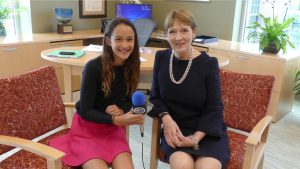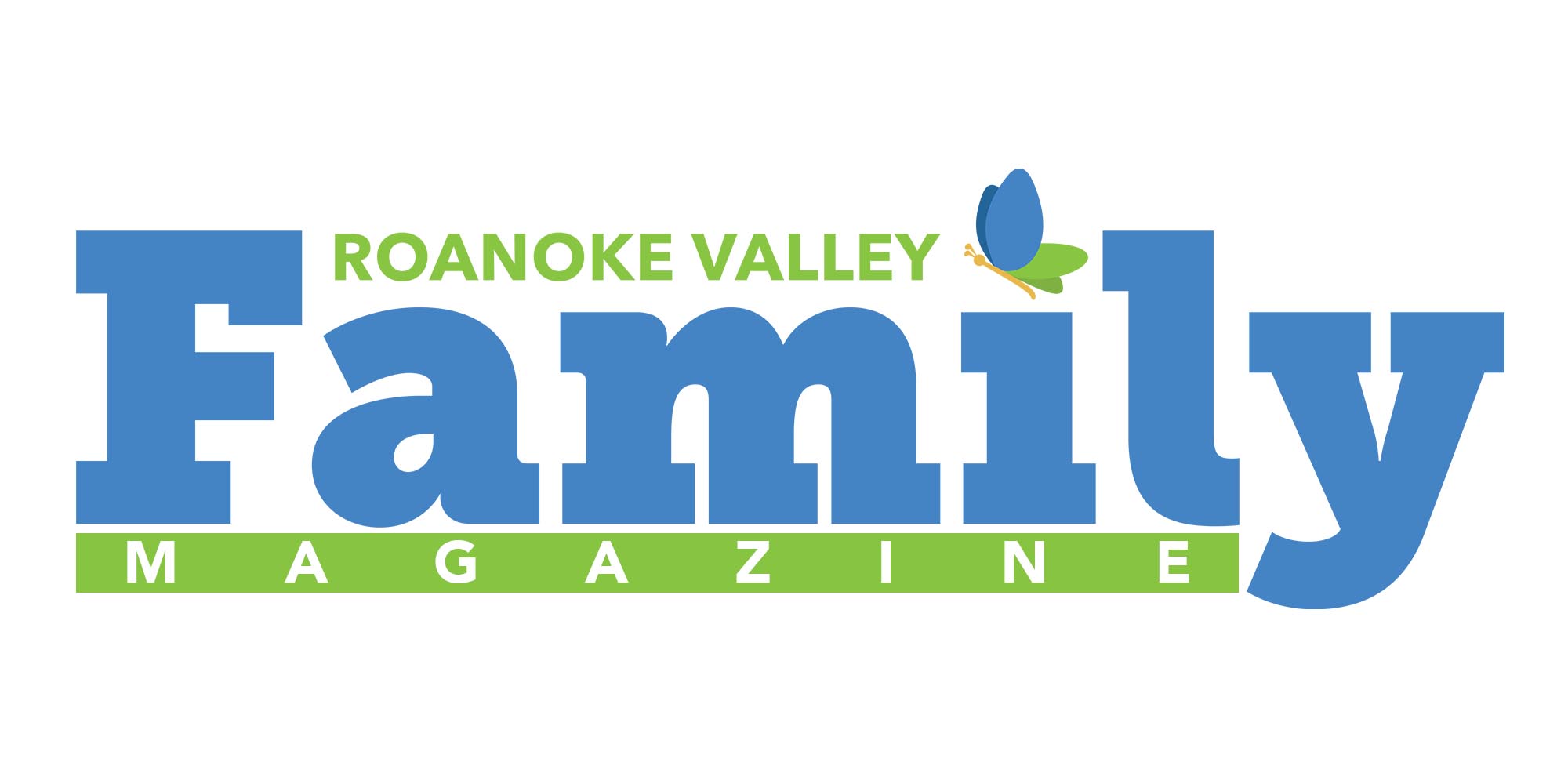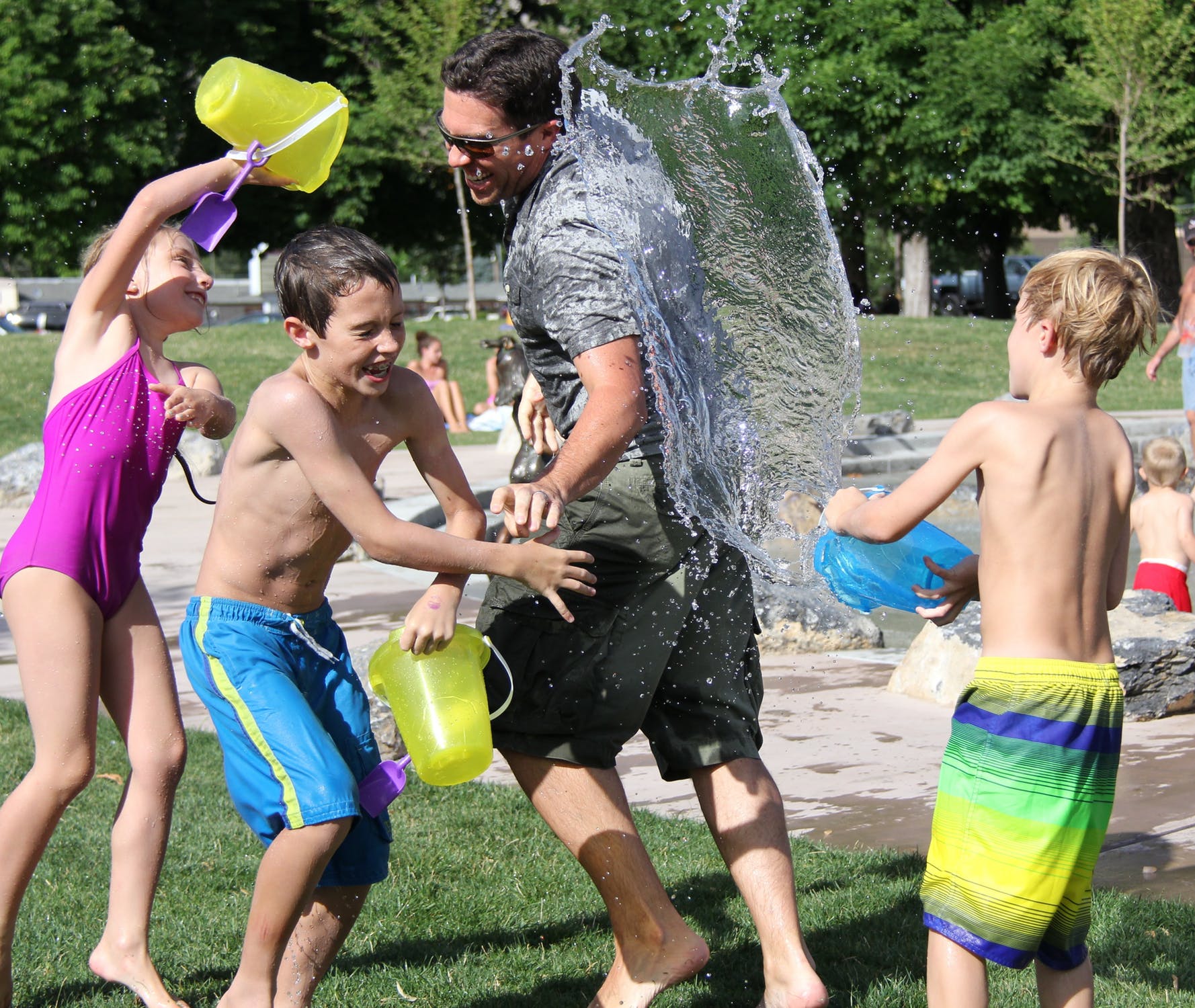3 Questions with Ava Rosa: Nancy Agee of Carilion Clinic
 I’m here to talk with Ms. Agee and find out more about health care in America and what it takes to help a community be healthy.
I’m here to talk with Ms. Agee and find out more about health care in America and what it takes to help a community be healthy.
Ava Rosa: Thank you for meeting with me today Ms. Agee.
You started your career at Carilion in the 1970s as a nurse and have since worked your way to the top of the same organization over your career, what do you think has been the most important factor in your success and lead to your ability to move up within your organization?
Nancy Agee: Thank you for asking that and it’s a kind of hard question to answer. I would say what’s been the most important characteristic that I’ve had is curiosity, which is also one of our Carilion values. So, it’s really being interested in and anxious to learn more and just continue that evolution, that journey. Whether it’s formally, through education, or just in general, learning more and more about the organization. I think the other thing, and this is perhaps important for everyone, but especially for women, and that is to lean in. To say “Hey I’m here, I’ll do that”, you know “I’d like to do something” and not so much, not saying no, but putting your best face forward or your best foot forward and enjoying what you’re doing. So there’s just a lot of joy and passion for me about every step that I’ve had in this organization.
Ava Rosa: I learned as much as I could about health care in the last few weeks since I knew we were going to meet. It seems like there is a lot of uncertainty about the future of health insurance in America. I discovered that with current proposed changes to the U.S. budget, there could be over 23 million Americans who lose their insurance. As a CEO of Carilion and the incoming chairperson of the nationwide American Hospital Association, what do you think is going to happen to our health care system in America and what keeps you up at night?
Nancy Agee: There’s three simple words to your question, “I don’t know,” but let me expand on that. So, the Affordable Care Act was at its heart an insurance product, so that many more Americans could get insurance, either through Medicaid expansion or through the exchanges. The exchanges have been unstable because of the subsidies necessary and because, as it turns out, older and sicker people got into the insurance exchanges and that cost more than what was expected. So that’s been real frustration and it [has] in some ways, created pressure for employers, who are buying insurance, because their rates have gone up to offset that. So, it’s a quagmire and we know and I have to understand that employers are concerned because their costs are going up. Legislators are concerned because they’re hearing from their constituents that their healthcare is unaffordable. At the same time, we’ve got plenty of people who are now newly insured and we know that people who have health care insurance, actually have better health care. They have better health outcomes. They seek health care sooner when it’s easier to control their illness, to diagnose things. So, against all that backdrop, then is this concern to fix it, fix the Affordable Care Act or get rid of the Affordable Care Act. So, we now have this new bill that the house has passed and in it, it looks like many people will would be without health insurance. That’s now gone to the Senate. My best guess is the Senate won’t do quite as much, but you know, if I was a betting person, I would say sometime between now and July 4th, they will pass a bill and I’m very worried about it. So I’m very concerned about people being without insurance, as well as concerned about affordability of health care in general and that’s where, here in Southwest Virginia, we focus on how to improve health outcomes, how to be a part of our community’s health, and how to reduce health care costs.
Ava Rosa: Roanoke Valley is an amazing community, but like any other, it has challenges. According to the Carilion Community Needs Assessment, there are large groups of people facing high rates of poverty. How do poverty and health go together and what are you and Carilion doing to improve the health of those in our area who struggle with poverty?
Nancy Agee: So I love that question, because it’s right at the heart of why I do what I do and you’re right, we have concerns right here in the Roanoke Valley. We know that people who are poorer are often sicker and don’t have a sort of a network to help them get well and live a healthy life. Socio-economic determinants of health are well known issues that really cause health care to be more expensive and health outcomes to be less good. So, right here in our region, we have some of the lowest health outcomes, poorest health outcomes, in the whole state. So, we’re really looking at how do we make a difference right here in the Roanoke Valley and what I see the role of Carilion to be is a convener.
So, let me give you an example. We can take great care of you when you’re sick, but what we really need to do is create an environment for you to stay well, right? And that’s not just Carilion’s job, that’s a way for all of us come together, whether it’s the school system, the police department, the economic development. We want to create a real vitality around Roanoke, where people are safe, healthy, have good jobs, and that actually makes a huge difference to socio-economic determinants of health. So what Carilion’s trying to be is a convener, reaching out to the wonderful organizations all across our area.
We’re so fortunate to have a good United Way, to have a good Rescue Mission, to have a vibrant city manager and the leaders of this city who want to make a difference, a great school system. So how do we take those pieces and then focus in the areas where we have a poorer or less healthy region and what can we do about that? So, for instance, in the southeast we’ve been a convener and it’s a really important word, a collaborator, with a variety of organizations to look at what are the needs in that area and that ZIP code, in that section of the city, and how can we address those needs specifically. Whether it’s with primary care, with dental services, with funding certain services, whether it’s providing more food. So for instance, we have a prescription food program, so if you can’t afford your food or we know that better food is going to make a difference, we can actually give you a prescription and funding and you can go to a market or to the grocery store and get better food. All of that fits in safe housing, so we’re really trying to organize a lot of community resources to make a difference.
The other thing we do is take the long view. This isn’t something that’s going to get fixed overnight, it’s going to take months, it’s going to take years, it’s going to be “okay, what does this region look like five years from now and how do we get there?”, very exciting you know. I don’t think we’ve ever really done this before in our region, to pull multiple resources together and harness this together, so we can very much focus on improving health outcomes improving the economy, and making this region a vital region. I haven’t even talked about the relationship with Virginia Tech and what we’ve done to grow research to create this innovation district with entrepreneurship and more business. We’ll save that for another day.
Ava Rosa: Thank you so much for meeting with me today Miss Agee. As promised I just asked three of the millions of questions I could have asked you. Please share any last thoughts you might have for our readers.
Nancy Agee: Ten years ago, before you and your family even moved to Roanoke, this area where my office is now was a brownfield and a floodplain, if you can imagine, and now it is a vibrant community with health care resources and a relationship with Virginia Tech, Carilion and Virginia Tech coming together to build a medical school and a research institute. So, we have one of the most competitive schools of medicine in the country now, with over 4,500 applicants for 42 slots a year. We have a Research Institute that seven years ago didn’t exist and now has more than 80 million dollars of funded research, in research that makes a difference globally in the area of biomedical sciences. We’re going to double the size of that. We’ve become very focused on creating a region of Health Sciences and technology on this campus and then spawning from that this innovation district. Where we’re going to, where I think 10 years forward, we’ll see new businesses coming to Roanoke, we will feel just a different vibrancy around the areas of Health Sciences technology and education and other businesses that are related.
So it couldn’t be a more exciting time to be right here, not just in healthcare, but in what we’re doing to really advance Virginia.
—-
Health is a challenging topic. It’s life and death stuff. On one hand, doctors have figured out how to cure diseases, ease pain and suffering, and help people live longer better lives. On the other hand, every new drug and every new machine which saves and improves lives, adds to the cost of healthcare. I don’t know what the future holds for healthcare in America, even after talking with one of the nation’s top experts.
In America, we pay for our own healthcare as a personal cost, a cost which too many citizens simply cannot afford. In other countries, the government provides access to healthcare as a shared cost that comes with citizenship.
I can tell after meeting her that Nancy Agee is a compassionate medical professional who genuinely wants to do what she can to help patients. I know there are millions of nurses and doctors and researchers and medical professionals like Ms. Agee, who just want to provide excellent care. I can’t help but wonder what we must do as a country to let them do their jobs.




